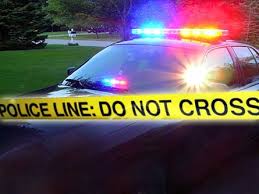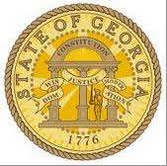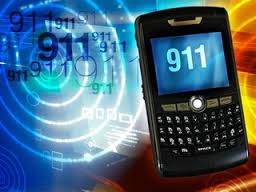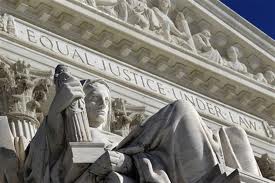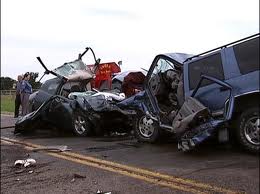 My friend and fellow trial lawyer, Lester Tate, and I are representing a young man in a case against Kawasaki, the manufacturer of the motorcycle he was riding when he was severely injured because it stalled on him. Months later, he received a recall notice that said the voltage regulator on his motorcycle was defective. The minute he received the notice he thought that sure explained what happened to him the day his world was turned upside with a catastrophic motorcycle wreck. The case was heard yesterday before the 11th Circuit Court of Appeals, our appellate court for cases that are filed in Federal Court, here in the Northern District of Georgia. One of the issues on appeal involves Kawasaki’s duty to warn its customers who have bought or used that particular motorcycle about a known defect with the motorcycle’s voltage regulator. So, a manufacturer’s duty owed to its consumer is heavily on mind right now.
My friend and fellow trial lawyer, Lester Tate, and I are representing a young man in a case against Kawasaki, the manufacturer of the motorcycle he was riding when he was severely injured because it stalled on him. Months later, he received a recall notice that said the voltage regulator on his motorcycle was defective. The minute he received the notice he thought that sure explained what happened to him the day his world was turned upside with a catastrophic motorcycle wreck. The case was heard yesterday before the 11th Circuit Court of Appeals, our appellate court for cases that are filed in Federal Court, here in the Northern District of Georgia. One of the issues on appeal involves Kawasaki’s duty to warn its customers who have bought or used that particular motorcycle about a known defect with the motorcycle’s voltage regulator. So, a manufacturer’s duty owed to its consumer is heavily on mind right now.
What exactly is a manufacturer’s duty to want its customers of a potentially defective product? Under Georgia law , when the manufacturer of a product has actual or constructive knowledge that its product involves danger to users of the product, the manufacturer has a duty to warn users of the danger. Battersby v. Boyer, 526 S.E. 2d 159, 162 (Ga. App. 1999). O.C.G.A. § 51-1-11(b)(1) provides that “[t]he manufacturer of any personal property sold as new property directly or through a dealer or any other person shall be liable in tort, irrespective of privity, to any natural person who may use, consume, or reasonably be affected by the property and who suffers injury to his person or property because the property when sold by the manufacturer was not merchantable and reasonably suited to the use intended, and its condition when sold is the proximate cause of the injury sustained.” The term “not merchantable and reasonably suited to the use intended” as used in this statute means “defective.” Giordano v. Ford Motor Co., 165 Ga. App. 644, 645(1983). “In a product liability case, the existence of a duty to warn depends upon the foreseeability of the use in question and the type of danger involved, and the foreseeability of the user’s knowledge of the danger.” Dorsey Trailers Southeast v. Brackett, 363 S.E.2d 779, 781 (Ga. App. 1987). A manufacturer may be subject to liability for failing to warn the user adequately of the known or foreseen danger if there is no reason to believe the user will realize the dangerous condition.” Id. at 477; see Ford Motor Co. v. Stubblefield, 319 S.E.2d 470, 477 (Ga. App. 1984). When a duty to warn arises, the duty may be breached in one of two ways: (1) failure to communicate the warning to the ultimate user; or (2) failure to provide an adequate warning of the product’s potential risks. Battersby, 526 S.E.2d at 163; see Wilson Foods Corp. v. Turner, 460 S.E.2d 532, 534 (Ga. App. 1995) (citing Thornton v. E.I. Du Pont De Nemours &Co. Inc., 22 F.3d 284, 290 (11th Cir. 1994)). “This duty to warn is a continuing one and may arise “months, years, or even decades after the date of the first sale of the product.” Watkins v. Ford Motor Co., 190 F.3d 1213, 1218 (11th Cir. 1999). “Some products are defective solely due to an inadequate or absent warning.” Chrysler Corp. v. Batten, 264 Ga. 723, 724, 450 S.E.2d 208, 211 (1994).
The issue of failure to warn, including the lack of any warning or the adequacy of any warning, is one that the jury must resolve. See, e.g., Dorsey Trailers Southeast v. Brackett, 363 S.E.2d 779, 782 (Ga. App. 1987); Bryant v. BGHA, Inc., 9 F. Supp. 3d 1374, 1389-90 (M.D. Ga. 2014); Giordano v. Ford Motor Co., 165 Ga. App. 644, 645 (1983)(“Whether a duty to warn exists thus depends upon foreseeability of the use in question, the type of danger involved, and the foreseeability of the user’s knowledge of the danger. See Greenway v. Peabody International Corp., 163 Ga.App. 698, 294 S.E.2d 541 (1982). Such matters generally are not susceptible of summary adjudication and should be resolved by a trial in the ordinary manner. Beam v. Omark Ind., Inc., 143 Ga.App. 142, 145, 237 S.E.2d 607 (1977).”).
 Atlanta Injury Lawyer Blog
Atlanta Injury Lawyer Blog




